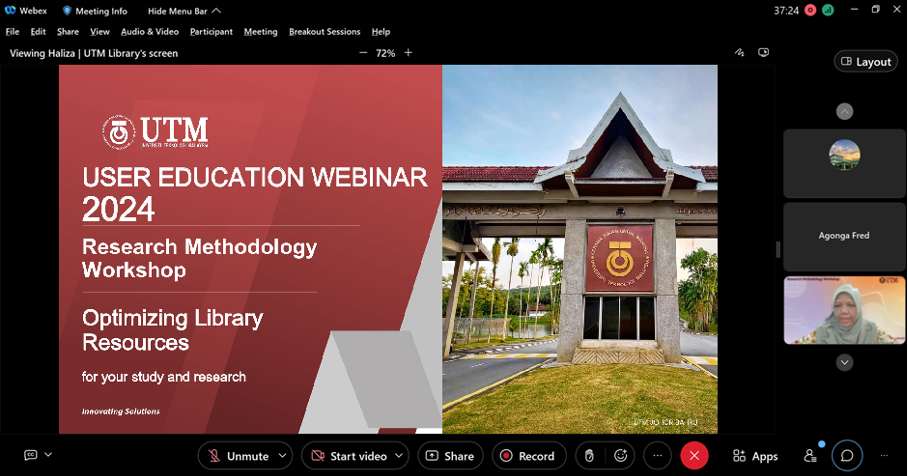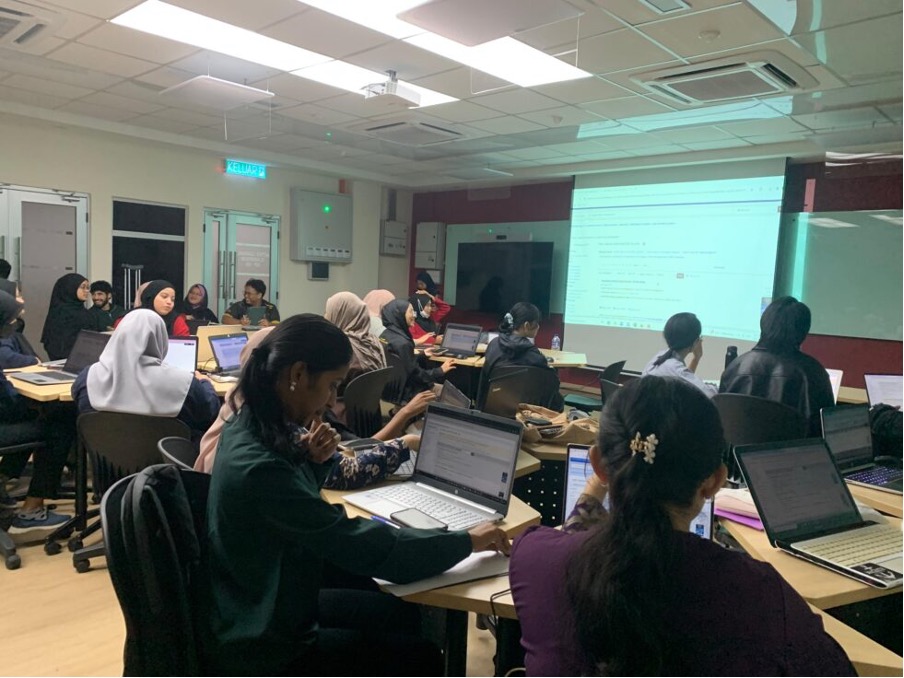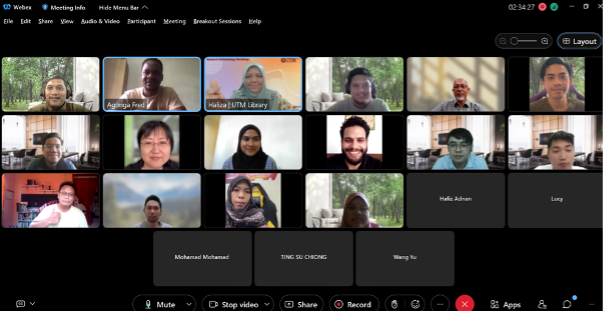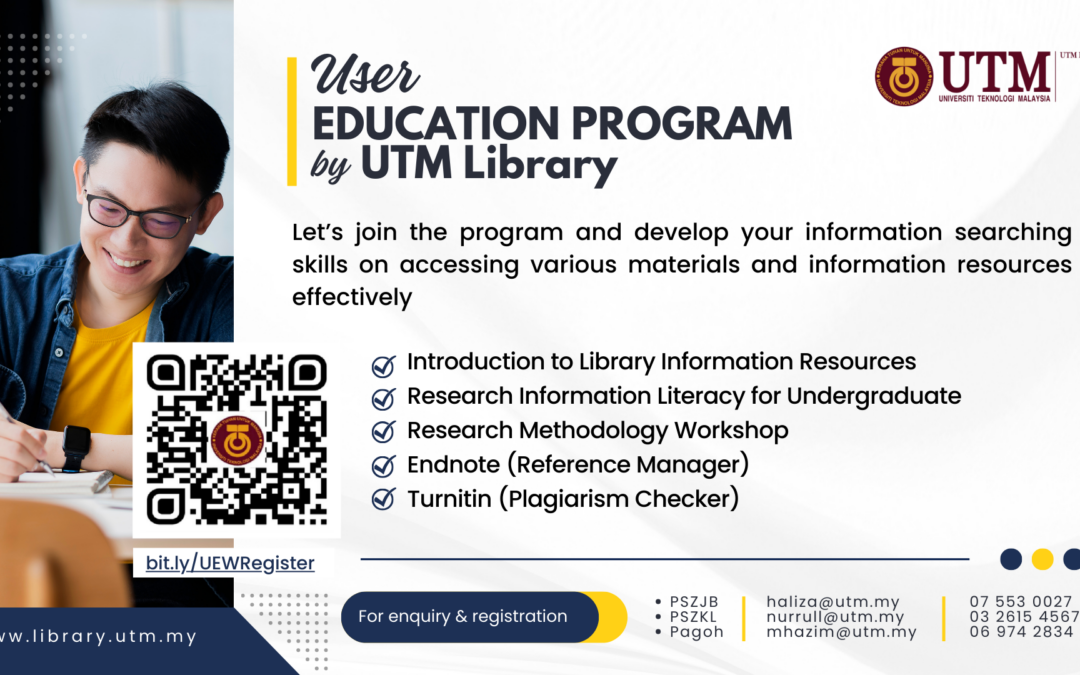In March 2024, a total number of five (5) User Education Programs were conducted with success. It consists of two (2) Research Information Literacy for Undergraduates and three (3) Research Methodology Workshops. These programs aim to provide postgraduate students with valuable knowledge and information-searching skills, empowering them to excel in various aspects of education and research.

The User Education Program covers topics:
- Information searching skills which is the ability to effectively and efficiently find relevant and reliable information using various tools and techniques.
- UTM Massive Open Online Course (UTM MOOC) focuses on the UTM Library Skills module to guide students and staff to improve their information literacy for education and research.
- Endnote X9 for students. EndNote is a powerful tool that streamlines the reference management process, saving time and effort for researchers and students. It is widely used in academic and scientific communities to maintain organized and accurate reference lists, ensuring that citations are consistent and conform to specific citation styles required by publishers or educational institutions.
- Turnitin for students. Turnitin is a text matching tool used by students to submit assignments. It checks for similarities between their work and existing sources, providing reports and feedback on originality and writing quality, aiding in academic integrity and skill improvement.
- Where to publish? It refers to the process of identifying and selecting suitable journals, conferences, or other platforms for publishing scholarly research or academic work.

A total number of 272 participants have joined the program. They are including both undergraduate and postgraduate students from various schools/faculties. By joining the User Education Program, it enables each participant to:
- perform thorough and effective research
- enhance proficiency in managing academic tasks, research papers, and projects
- independently access information supports continuous self-improvement and personal development
- Locate and retrieve relevant information empowers individuals to address issues and make informed decisions in academic, personal, and professional context
- Comprehend and follow copyright and intellectual property rights encourages ethical behavior when utilizing information and helps prevent plagiarism
- Demonstrate resourcefulness, flexibility, and a willingness to explore diverse information sources and formats, such as books, journals, articles, online databases, and multimedia resources.




